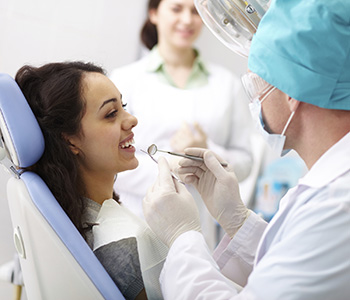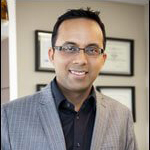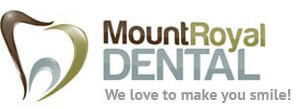
Burlington dentist answers: “Why do I need a complete oral exam when I see the dentist every six months?”

Dental exams are one of the easiest and best things you can do to achieve and maintain oral health. You may be wondering, “Why do I need a complete oral exam when I see the dentist every six months?” It’s a question we get a lot. While you do need to visit the dentist every six months for what we call specific oral exams, you may not realize that every 5 – 7 years we recommend what is called a complete oral exam. In the following article, we’ll explain the importance of these complete oral exams.
What is a complete oral exam?
Unlike specific dental exams that give an express evaluation of the teeth and gums, often in just a few minutes, complete oral exams are much more involved. It’s a standard dental procedure that gives us full assessment of oral health, including areas that are not visible to the human eye.
Why are complete oral exams so important?
Many oral health concerns occur gradually over time, with subtle changes that aren’t always noticeable until the problem has advanced. Complete oral exams give us baseline data on the health of the mouth so that we can monitor it over time looking for small changes.
The health of the mouth is a window into the body. During complete oral exams, your dentist is often able to identify risks for medical conditions in other areas of the body before they show symptoms. Examples of this include diabetes, high blood pressure, cardiovascular problems, and oral cancer.
What to expect with a complete oral exam
The first step in a complete oral exam is gathering a complete medical and dental history which includes a list of any medications, supplements, or vitamins that a patient is taking. We also take record of any surgeries, allergies, or other medical conditions that have been diagnosed. It’s important to have comprehensive records that we can refer to over time.
In many cases, a full set of digital x-rays and intraoral photos are taken during the complete exam. This allows the dentist to have a full visual of each tooth along with the structures that support the teeth to take note of any abnormalities. Different from check-up x-rays, this digital imaging allows us to see hidden issues such as cysts or abscesses, hidden cavities and any bone loss due to gum disease. These images are important in early detection of dental disease which can allow less invasive and less expensive treatments.
Next, the dentist will take a visual and manual evaluation of the lymph nodes looking for any pain or tenderness. The lips, the surfaces of the cheeks, the soft and hard palates, and the floor of the mouth will also be inspected.
Assessing patients for TMJ is also a critical part of the complete oral exam. The dentist will evaluate the health of the jaw, identifying any dysfunction including chewing issues or opening the mouth. A full periodontal screening to evaluate the pocket depth around the teeth will be performed to check the health of the gum tissue and the supporting bone structure.
The last step is for the dentist to evaluate the bite, looking for problems with misalignment. The teeth will also be assessed, taking note of any decay, impactions, or areas of wear.
Following a complete oral exam, the findings will be shared with the patients and a treatment plan can be developed if necessary. These complete oral exams allow the dental team to establish long term oral health care requirements.
Book your complete oral exam today!
At Mount Royal Dental in Burlington, ON, we make it easy to fit in your exam by offering early morning and evening appointments as well as alternating Saturdays. When you stay current with your dental exams and cleanings you can help ensure that you maintain a beautiful, healthy smile.
It’s never too late to start being proactive about your oral health. Has it been more than six months since you visited the dentist? Are you new to the area and looking for an experienced compassionate dental team? If so, it’s time to schedule your complete oral exam. At Mount Royal Dental, we offer a wide range of comprehensive dental services for patients of all ages. Call us today at (905) 581-9912.
Share this Article

He is ably assisted by Dr. Liliana Otrocol, Dr. Swati Khanna, Dr. Hina Sohail, Dr. Abhishek Apratim, Dr. Shakti Singh, Dr. Robert Barron, Dr. Amy Yeung, and Dr. Elizabeth Geisler. Together, they provide top dental services to the people of the area.
